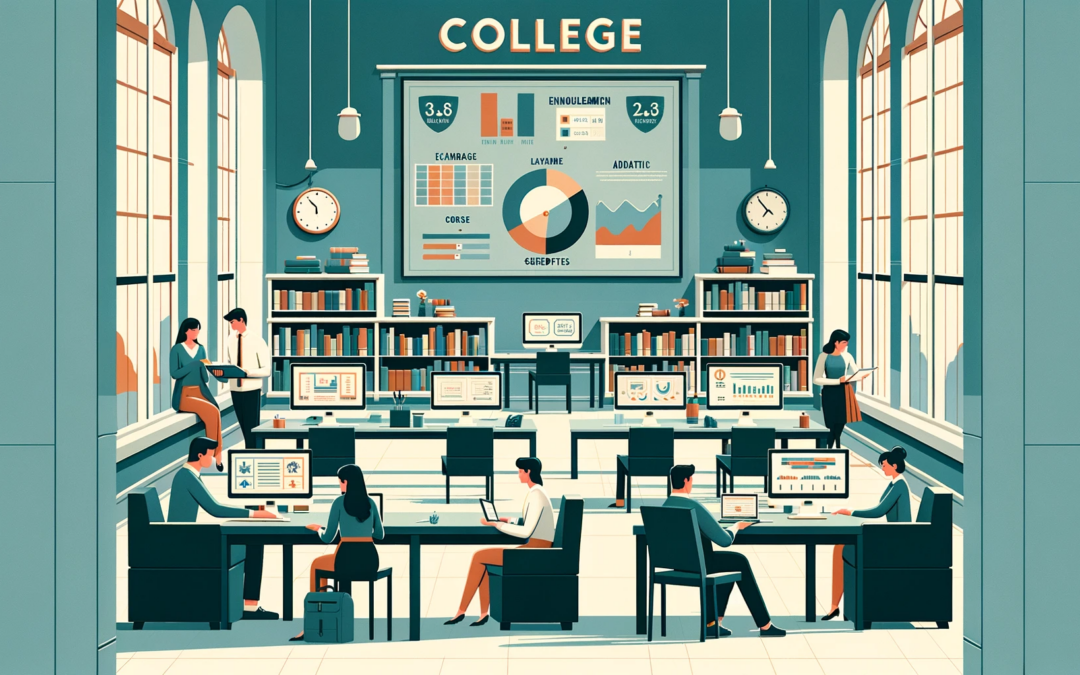Colleges and universities are using data in ever-growing ways. They analyze data in order to figure out which programs are doing well or whether new programs need to be added. They then examine the data to identify past patterns that might help predict what will happen next. And the data is increasingly being put to work in the field of artificial intelligence.
The use of artificial intelligence in U.S. education is predicted to grow by almost 50% over the next few years. Its uses range from the immediate and practical to the aspirational. Let’s take a look at how schools are using data in the field of AI, both directly with students and for administrative purposes on the back end, as well as the challenges the technology can present.
Ways AI is already being used
Some schools are already using artificial intelligence to varying degrees. Many schools employ some form of chatbot, whether it’s in a direct text message to an incoming student, or by providing information on a ‘Frequently Asked Questions’ webpage.
Some schools use AI to help target students in need of support. By gathering data about what makes a student successful, Ivy Tech Community College in Indiana used machine learning to identify students at risk of failing. Faculty and staff then reached out to those students with individualized advice that could help those students find help.
Artificial intelligence is also one of the fastest-growing trends in hiring. Using an AI tool can cut down the time it takes to sort through resumes and zero in on applicants whose qualifications meet the needs of the institution.
The next level of AI
Much like artificial intelligence is used in hiring, many schools are examining how it could be used in admissions. Schools can use AI to personalize the admissions process for students, as well as identify which applicants are most likely to succeed in their programs.
Companies are also developing artificial intelligence technology to help differentiate instruction. With AI, instructors can identify when a student is advancing and can handle an increased difficulty of work. Instructors can also pinpoint when the speed of instruction needs to slow down if there is a gap in understanding. It is possible that AI can develop to the point where it can identify understanding based on a student’s facial expressions and adjust instruction as a result of that information.
Artificial intelligence also offers potential time-saving solutions to benefit instructors. Machines are already being used to grade multiple-choice tests, but AI technology that can be used to assess written work is not far in the future.
Advances are being made in artificial intelligence when it comes to research as well. It is possible that the most time-consuming aspects of a professor’s research can soon be done by a machine, whether it’s testing billions of drug combinations in a lab while searching for a treatment option, or deciphering the handwriting in ancient texts.
The challenges of artificial intelligence in higher ed
Using AI is not without its challenges. When so much student data is being used to personalize instruction or to streamline administrative processes, privacy issues always come to the forefront. Schools also need to figure out a way to balance the roles of its employees alongside the machine learning that is taking place. While many in the field of higher ed embrace the use of artificial intelligence, they are aware that it could end up making some of their own jobs obsolete.
Still, one reality that many in higher education point out when the discussion centers on the use of artificial intelligence is that the students who are experiencing AI in the classroom are the ones who are going to be shaping it in the future. They feel that there are more positives than negatives to exposing the students to its benefits, while also bringing to their attention the areas for improvement.
- Summer is an Opportunity for Digital Transformation in Education - April 17, 2024
- Your Car is Tracking More than Miles per Hour - April 11, 2024
- Data Can Help Provide Equal Footing in Cannabis Space - April 3, 2024




